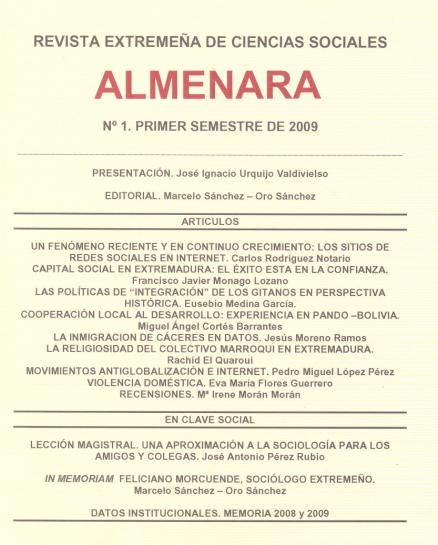Autores/as
-
Pedro Miguel López Pérez
Autor/a
Palabras clave:
Social movements, Anti-globalization, Internet, Network, Economic, Financial, Liberal, Alternative
Resumen
Internet offers to anti-globalization movements the possibility of being the creators of their messages and not to depend on the political and economic will of mass media organizations. The extension of the access to information and the possibility of producing their own information, modifies the styles of political intervention.
Internet represents another area from which the networks of world-wide social movements can fight, from which they can propose a counter hegemonic space and break the informative blockade of mass media groups. They redefine the scene of worldwide protest, information and the fluidity of communication become an indispensable requirement to articulate most of their actions, and in this way to maintain their motto “we are everywhere”. They propose the construction of collective action based on local problems articulated with global ones, or the other way round, and they make use of networks to level the power relations that occur between both spaces.
Biografía del autor/a
-
Pedro Miguel López Pérez
Licenciado en Ciencias Políticas y Sociología (especialidad Sociología Industrial) por la Universidad Pontificia de Salamanca. Diploma de Estudios Avanzados en Sociología, por la misma Universidad. Master en Dirección de Recursos Humanos, por ITAE Escuela de Negocios de Extremadura. Técnico en Prevención de Riesgos Laborales, por la Escuela Gallega de Prevención, Calidad y Medioambiente. Certificado de Aptitud Pedagógica, por la Universidad de Extremadura; Metodología Didáctica y Formador de Formadores. Compagina su actividad como técnico de formación con la impartición de conferencias y cursos de formación para distintas empresas, instituciones y asociaciones. Autor del libro Otra cara de la globalización: la problemática de la Deuda Externa, Editado por la Red Ciudadana por la Abolición de la Deuda Externa (2001) y coautor del libro “El campo andaluz y extremeño: la protección social agraria”, Editado por el Consejo Económico y Social de España (CES), Madrid, 2003. También es autor de varios estudios de investigación social. Colaborador habitual en prensa y en revistas especializadas de Sociología, Desarrollo Rural, Cooperación Internacional, Voluntariado y Ayuda al Desarrollo (tanto en papel como en publicaciones digitales). Ponente en distintos congresos, seminarios, jornadas y conferencias. Miembro de distintas asociaciones profesionales, culturales, etc.



